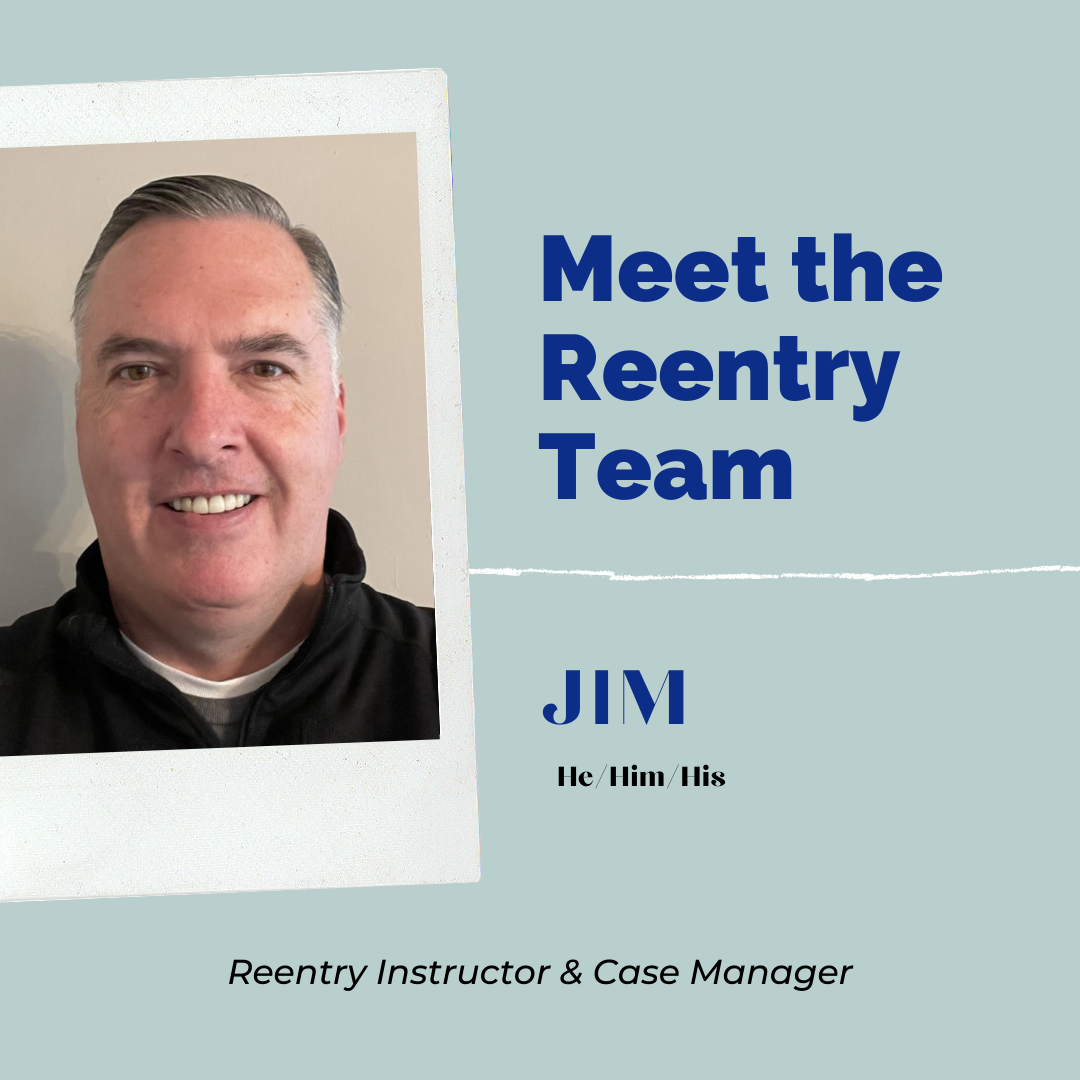
What is a day in the life of Jim like at Project Place?
“In many cases, clients’ anxieties are triggered by not having the structure they became accustomed to while incarcerated. So, I find a lot of times I am just trying to help clients navigate through the complexities of everyday life that we take for granted. For example, a client I worked with started in the system when he was 12-years-old, transitioning between DCF to youth detention centers and ending up in adult prisons. He is now 30-years-old and struggles to know how to handle his emotions or how to make decisions for himself. Teaching life skills and being patient is central to this work and an incredible job to do. Every day is a little bit different. There is a lot of responding to situations as they arise, with a very gentle and individualized response to each person and understanding what they are going through. That is a big portion of my day. Then the other part is working in the classroom, teaching and developing curriculum.”
What inspires Jim to work in reentry?
“What inspires me is the ability to truly help others. I often talk about the Venn diagram between people experiencing homelessness, people with substance use disorders, and people who have been incarcerated. The overlap between these populations is pretty significant. However, the group with the least amount of public compassion are the folks coming out of reentry. They are judged in a different way. When you have someone who has gone through incarceration, the record that follows them around creates a unique type of challenge. What I hope to do in my work is help people find their way and be successful in their reentry, making sure they know that there are people out there who are not going to judge them because of their past. I try to help people holistically feel great about themselves. While many aspects of society are not fair, with the right support system we can overcome barriers and find a way forward.”
What would Jim like the public to understand about the challenges individuals in reentry face?
“What I would like the public to understand is that people who are incarcerated and in reentry are a group of people who are still discriminated against in many ways. When someone is labeled as a felon they lose many of their civil liberties. Upon returning to the community their independence continues to be limited, whether it’s through community supervision and having to wear a bracelet or trying to apply for a job and all the sudden a CORI (Criminal Offender Record Information) is pulled up. That creates a significant barrier to finding a job or housing. We work to find creative ways to establish stable housing and to find CORI-friendly employers who are willing to offer the opportunity to formerly incarcerated individuals. When we find CORI-friendly employers who allow someone to develop a career, rather than just a job, we see a client’s life truly transform, not just economically, but also in a holistic way. Those are the struggles and what I try to address on a daily basis.”
What are you working on right now that you are most excited about?
“Developing curriculum is very exciting because it’s complex. Currently, I’m developing curriculum for a financial literacy course. There are many triggers around managing money that we need to be aware of and sensitive to in working with the population we serve. Beyond that, I truly love to work with our clients. When I can connect with a client and listen to their story, share some of my story, we begin to establish trust. From this point on, I learn about their challenges and successes, which keeps me moving forward. I can think of one client we placed in a detox center last week and he called me yesterday. He was only allowed to make one phone call for his first five days, and I was the person he chose to call. He told me that he’s doing really well. The fact that I am able to connect with the clients that way is something really special.”
Outside of Project Place, what would you find Jim doing?
“On a weekly basis, I teach at Tufts University, delivering a new educational program called MyTERN which is part of the Tufts University Prison Initiative of the Tisch College of Civic Life (TUPIT). ‘The Tufts Educational Re-entry Network (TERN) employs a multi-pronged, trauma-informed approach to re-entry.’ Many of the MyTern program students are now engaged in services at Project Place, as well.
Also, on a weekly basis I co-facilitate a Nurturing Fathers Group. Members of this group also participate in programs and services offered by Project Place.
In my free time, I have four wonderful daughters who I love spending time with, whether we are skiing together or just going for a walk in the city. I also foster a service dog, so I take care of and train him. I also enjoy exercise and meditation to keep me healthy and centered.”
